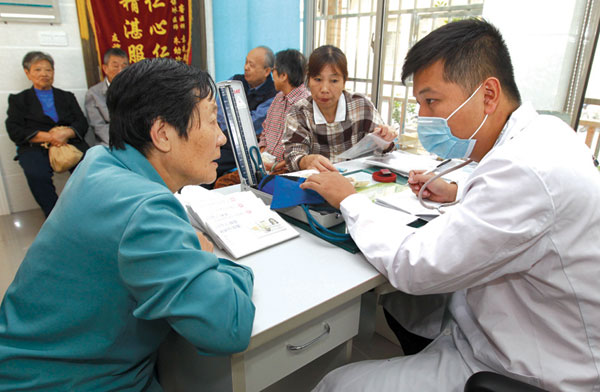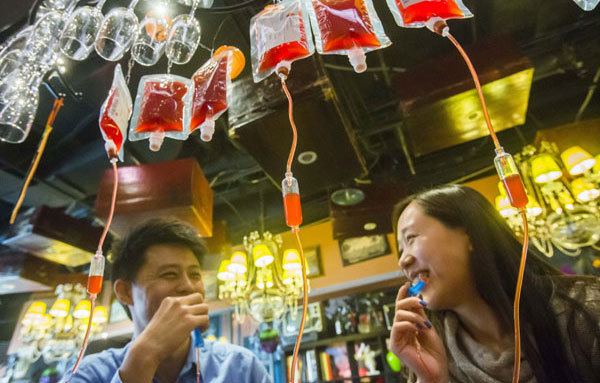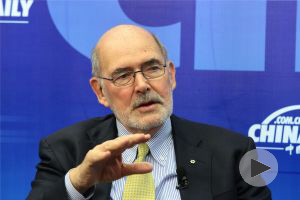Community health centers to ease pressure on large hospitals
Updated: 2013-10-30 07:35
By Wang Hongyi in Shanghai (China Daily USA)
|
||||||||
Wang Yao, a 31-year-old Shanghai woman, developed a high fever last month after returning from a business trip.
The high temperatures made her toss and turn all night.
"My husband took me to a hospital immediately," she says. Wang didn't go to a community health service center, which is just about a 10-minute walk away.
"I had a blood test in the hospital and the doctor said it was not a big problem. He prescribed me a dose of medicine and asked me to rest at home. The whole process took me less than 30 minutes," Wang says.
|
People receive medical service at a community clinic in Shanghai. Pei Xin / Xinhua |
"I know the community hospital might be more convenient. But I prefer larger hospitals though they are far away because I think the medical staff in the bigger hospitals might be more professional and experienced," Wang says.
Like Wang, many patients share the same opinion. But many cities across the country including Shanghai are promoting community-based health service centers, which could divert some patients from large hospitals, especially those with minor illnesses.
"Patients like to rush to large hospitals when they feel slightly unwell. Consequently, all major hospitals are bursting at the seams. These minor ailments can actually be treated in community-based hospitals," says Xiao Feng, head of a community hospital in Shanghai's Changning district.
In 2011, Shanghai took the lead in the country promoting a new system for patients by introducing licensed family doctors at community health centers. Under this system, residents can receive medical advice and treatment in or near their communities without going to large hospitals where they have to wait for a long time. The system also eases the pressure on the big and often overloaded hospitals.
Figures from the city's health authorities showed that more than 2,200 family doctors are now providing medical services for more than 3.7 million residents in the city.
Health officials also admit that many residents still prefer going to big-scale hospitals rather than going to family doctors.
"People have been used to going to large, prominent hospitals for everything, from just a light cold to a serious illness. It takes a longer time to change patients' habits," says Xu Jianguang, director of Shanghai Health and Family Planning Commission, adding that about 75 percent of patients who go to top hospitals have minor ailments that could be treated at community hospitals.
"We will continue to improve the service at community-level hospitals," Xu says.
Earlier this year, Shanghai's health authorities announced a new round of incentive plans to encourage more patients to visit community-level hospitals, further diverting the crowded patients flow in large hospitals.
Under this plan, family doctors are entitled to give their patients referrals, allowing them to see prominent specialists from top hospitals without having to line up.
Besides that, family doctors will be allowed to prescribe drugs that previously only doctors at large hospitals were allowed to prescribe.
"In the long run, the burden on top hospitals will be eased. More resources in large hospitals will be used to deal with complicated diseases, which will help improve the efficiency of medical resources," Xu says.
wanghongyi@chinadaily.com.cn
(China Daily USA10/30/2013 page10)
Most Viewed
Editor's Picks

|

|

|

|

|

|
Today's Top News
China's population policy unchanged
Boston victim's scholarship fund reaches $1m
Beckham picks Miami for MLS franchise
UN urges end of US embargo on Cuba
IMAX: Coming to a home near you
SUNY recruits students in China
NSA denies reports on US spying in Europe
US approves chemical probes against China
US Weekly

|

|














